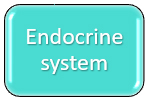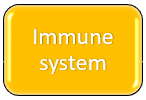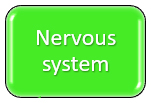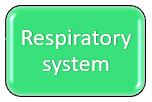What is Nutritional Therapy?
Friend, I pray that you are prospering in every way and that you continually enjoy good health, just as your soul is prospering¹.
Welcome to the Nutrition for Life Ireland website. Nutritional therapy is, simply put, the ancient science of ensuring the foods we eat are promoting health, not dis-ease. My goal as a nutritional therapist is to help improve your quality of life through dietary and lifestyle changes.
Traditional cultures understood the powerful relationship between diet and health, their food was indeed their medicine (this quote is attributed to Hippocrates (460-370 BC) but was true of almost every culture in history²). The foundations of their health were built on the everyday foods they ate, and they used various foods including organ meats and herbs therapeutically where needed.
Unfortunately, in our modern, busy world many have lost touch with the skill of using real food to restore and maintain health, both physically and mentally. Highly processed foods may be convenient and have a long shelf life but they do not promote health. More often than not they contribute to all sorts of illnesses from headaches to cardiovascular disease. Making even minor changes to our daily diet can have a significant impact on our overall health and wellbeing.
According to our own government’s research³ only 40% of the population are a healthy weight (these figures are pre-lockdown which has had a significant impact on overweight and obesity in both adults and children). The risk factors for cardiovascular disease, diabetes, cancer, arthritis and mental health issues are much more substantial in the 60% of the population that is overweight or obese. These figures may seem bleak, and they are, but the good news is that dietary and lifestyle changes can have a significant impact on you and your family’s health. For example: a recent German study⁴ involving over 23,000 men studying the effects of lifestyle on chronic disease reported the following:
By giving up smoking, maintaining a body mass index of less than 30, exercising over 3.5 hours a week AND eating a healthy diet, the following was observed:
%
Risk Reduction of developing Type II Diabetes
%
Risk reduction of heart attacks
%
Risk Reduction of having a Stroke
%
Risk reduction in Cancer Development
Key areas for optimal health
You may be wondering how this works. Take someone struggling to lose weight as an example. Many people trying to lose weight focus solely on the calories they are eating and maybe the calories they are trying to burn. However, our body does not see the food we eat purely as calories for energy. There are often several interconnected reasons why someone is carrying excess weight. One may be living under constant, low level stress; maybe your hormones (endocrine system) are out of sync; a malnourished brain; or compromised digestive, immune and/or respiratory systems. One of the main reasons I run 12-week programmes is that these issues can take a while to become apparent and then to resolve. Three months therefore gives us the opportunity to identify and address the dietary and lifestyle changes needed and to incorporate them into workable, enjoyable and sustainable eating and lifestyle habits.
You may also wonder why I have not included the cardio-vascular system, if these 6 systems are healthy your blood pump will also be healthy (unless there is a congenital issue of course). The same is true for energy levels, skin issues, brain fog etc. Feel free to contact me on 087 228 3820 or [email protected] to discuss your health challenges further prior to booking.

Life has stressors, they are unavoidable; while I don’t personally know anyone (do you?) who has had to run away from a lion or a tiger or a bear…I do know pretty much every one of us are regularly exposed to low level stressors – from not being able to find your keys when your rushing out the door to being stuck in traffic, to worrying about your children, job, health, finances, the list is pretty much endless. While we cannot eliminate stress from our lives, a nutrient rich diet will support a healthy adrenal system and minor lifestyle adjustments can also make significant changes to our ability to cope with stress. More often than not, clients find that after the 12-week programme many of the issues which used to cause significant stress no longer worry them at all!

You have probably heard the saying “you are what you eat”, a more accurate phrasing is “you are what your body can absorb”. Health or disease begins in our gut, our gastro-intestinal tract (GIT). Highly processed, nutrient devoid foods laden with pesticides and other toxins compromise the ability of our digestive tract to do its job. I put a lot of focus on foods which support gut health and help it heal. Indigestion, reflux, bloating, flatulence, constipation and/or diarrhoea are all signs your GIT is under stress and not functioning optimally. Detoxification is all the rage but there is more to digestion than our liver (the primary organ of detoxification) and it is important to focus on all organs involved in digestion, assimilation and detoxification to attain and maintain health.

Hormones are chemical messengers which travel around our bodies in our blood stream. They include insulin, ghrelin and leptin which support digestion, oestrogen, progesterone and testosterone which regulate our reproductive systems and many others. These chemical messengers exert their effects by interacting with receptors on various cells, organs and tissues. Too much of one hormone, insulin, for example can have a negative effect on other hormones which in turn affects other systems. Our bodies can handle the occasional increase or decrease in a certain hormone, but chronically altered levels will result in disease. Hormones are not just affected by the foods we eat, but by chemicals in our environment, for example the xeno-oestrogens in plastic products can result in elevated oestrogen in women and reduced testosterone in men. A nutrient rich diet is important not only to supply the building blocks of these hormones but also to ensure we are not ingesting substances which lead to hormone disruption and disease.

Our immune system is what helps protect us from pathogens and environmental toxins. When it is robust it can handle pretty much any virus, bacteria or toxin it is exposed to. We know it is working when we experience symptoms like a runny nose, cough, mild fever, fatigue etc. Unfortunately, in our busy lives we often feel we don’t have the time to be inconvenienced with these symptoms, so we supress them with medications without realising we are actually making trouble for ourselves in the long term. The good news is that improving your diet and supplying your immune system with the nutrients it needs to mount appropriate responses to pathogens or toxins is easy. More good news is a healthy immune response means less unpleasant symptoms. Understanding how it works and supporting rather than supressing it will mean, regardless of our age and regardless of the virus or bacteria, we can know that our immune system can deal with the offending pathogen.


Our lungs do so much more than inhale oxygen and exhale carbon dioxide. They are often the first port of call so-to-speak when a pathogen enters our body. If they are healthy and well-nourished they will mount an appropriate response and we will probably not even be aware of what’s going on. The right foods support this but also help with the physical act of inhalation and exhalation. A diet high in inflammatory foods will actually compromise the ability of your lungs to function properly. Learning to breathe properly will also help temper an excessive stress response.
- 3 John 2, The Passion Translation
- Price, W. A. (1939). Nutrition and Physical Degeneration. Lemon Grove: Price-Pottenger Nutrition Foundation
- A Healthy Weight for Ireland. Obesity Policy and Action Plan, 2016-2025. Dept of Health https://assets.gov.ie/10073/ccbd6325268b48da80b8a9e5421a9eae.pdf
- The European Prospective Investigation into Cancer and Nutrition. https://epic.iarc.fr/about/about.php
- https://www.britannica.com/science/homeostasis
Contact
Contact Linda to make a booking or for further information
Interested in Pilates?
Address
Floraville, Clondalkin,
Dublin 22
